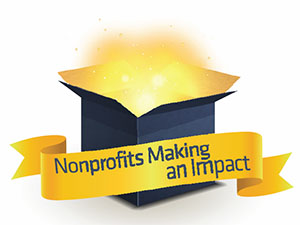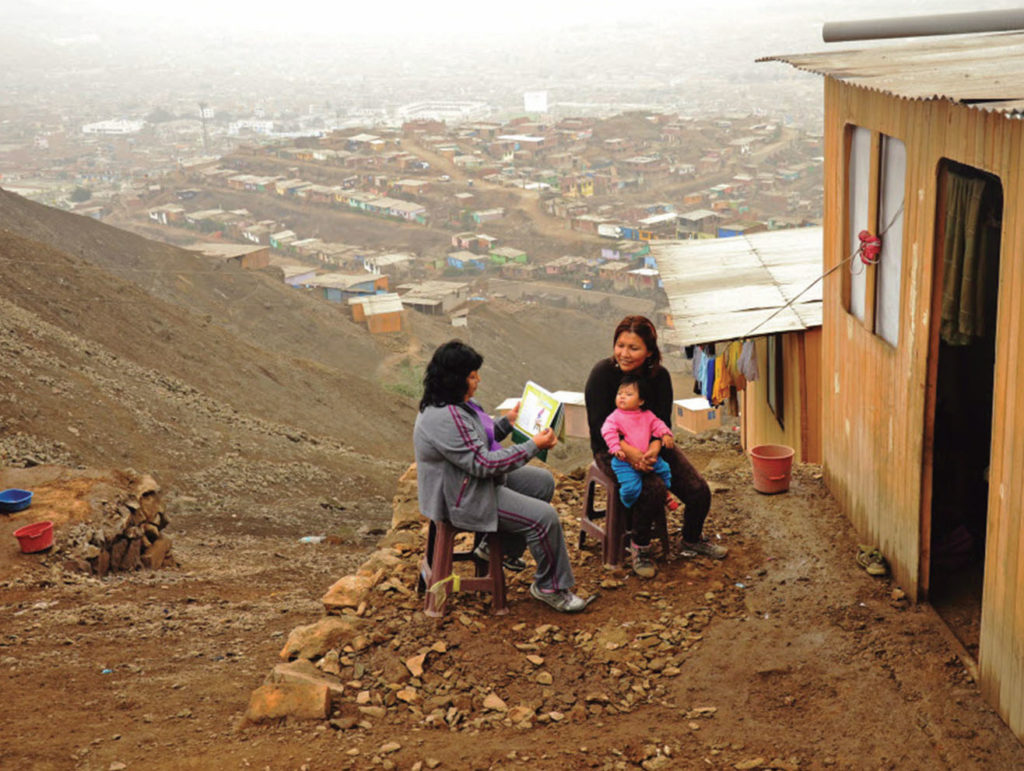
Home visitation programs and support groups to motivate peers are important in transforming the health of isolated or vulnerable communities that face barriers due to distance, money, and/or social factors such as cultural discrimination, mistrust, and language. To date, such programs have been most used to prevent maternal and child deaths. Here we profile a nonprofit that is extending the application by managing more complex chronic diseases such as HIV and mental health or emerging infectious threats like Ebola, as community health needs evolve.

What It Does
In the late 1990s, PIH pioneered community-based care for HIV-positive patients in rural Haiti. Such patients were previously considered too expensive and too complicated to treat in poor rural communities. Since then, PIH has hired and trained more than 12,000 community health workers (CHWs) around the world with their “accompaniment model,” which overcomes barriers such as distance, cost, and stigma to reach people directly in their homes. These CHWs visit patients at home and become trusted sources of support while supervising treatment. PIH has demonstrated that this model is particularly effective for treating complex chronic diseases such as tuberculosis or HIV/AIDS that require strict adherence to medications.
How Effective Is It
In addition to Haiti, PIH has supported countries such as Peru, Rwanda, and Sierra Leone in building community-based systems to address a range of health burdens, including tuberculosis, HIV, cancer, Ebola virus, mental health, maternal and child health, diabetes, and hypertension. The following are just two examples of their global impact.
Peru: Multidrug-Resistant Tuberculosis
Known locally in Lima as Socios En Salud, PIH has applied its accompaniment model since 1996 to address multidrug-resistant tuberculosis, which requires patients to receive two or more years of daily treatment. This treatment regimen is difficult to maintain and often produces serious side effects. However, by training CHWs to monitor treatment, PIH has treated more than 10,500 people with multidrug-resistant tuberculosis as of 2018, with cure rates greater than 75%, some of the highest globally. PIH’s model has since been established as an international standard for treating multidrug-resistant tuberculosis around the world.
Sierra Leone: Ebola
PIH began working with Sierra Leone’s Ministry of Health in September 2014 to address the spread of Ebola in rural communities. In partnership with local NGO Wellbody Alliance, PIH employed roughly 800 CHWs to identify those infected, connect them with treatment, and help fight stigma associated with Ebola survivors. By June 2015, these CHWs visited more than 1.1 million homes in Ebola-affected communities and used their local knowledge and community ties to educate villages on the importance of early diagnosis and seeking care. To address stigma and social isolation faced by Ebola survivors, PIH also offered vocational and literacy training, scholarships, and employment to survivors and their family members.
How You Can Help
A donation of $100 can provide essential community-based care and nutrition for a malnourished child in Haiti. PIH is also bringing its model to new health issues, such as breast cancer, by training CHWs to identify early signs of breast cancer and connect women with local health centers—thus reducing the number of patients arriving at hospitals in later stages of cancer. A $700 donation can provide a woman with full breast cancer treatment in Haiti. Donate any amount at: https://www.pih.org/pages/donate/give-today.
Personalize This Project
PIH works in Haiti, Lesotho, Liberia, Malawi, Mexico, Navajo Nation, Peru, Russia, Rwanda, and Sierra Leone. PIH also supports local NGOs, including Muso in Mali, Last Mile Health in Liberia, and Possible in Nepal in applying community-based approaches in other countries.
